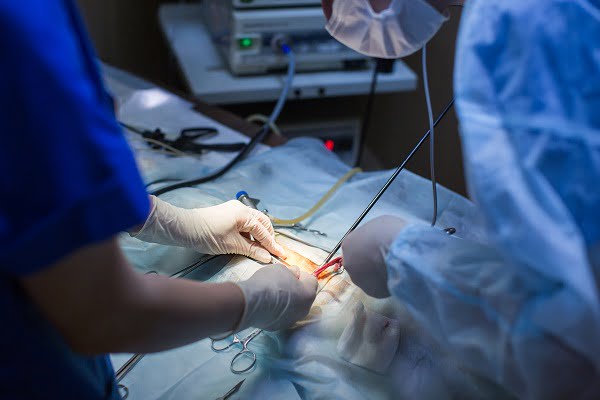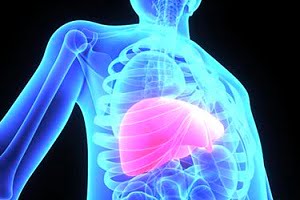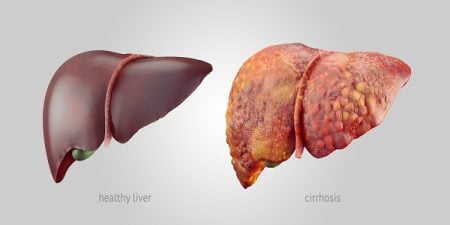What is the Treatment of Cirrhosis ?
- Updated on: Jul 8, 2024
- 4 min Read
- Published on Apr 19, 2021

Cirrhosis Treatment
There is no treatment for cirrhosis and for repairing the scarred tissue developed due to cirrhosis. However, treatments to prevent the further liver damage are available.
Changes in lifestyle like avoiding alcohol and adopting healthy diet can help a lot. Sometimes, the treatment options available are no longer beneficial for the person already suffering from cirrhosis. The patient may need surgery in order to get through the complications developed with cirrhosis.
Following are the treatment options suggested by healthcare professionals:
- Lifestyle changes
- Medications for treatment of complications
- Liver transplantation
Lifestyle changes
A person can do a number of things to stay healthy and avoid various complications of cirrhosis. Following are some of them:
Avoid alcohol
Excessive use of alcohol for a prolonged time causes cirrhosis. A person diagnosed with cirrhosis should immediately stop consuming alcohol. Any amount of alcohol is toxic to the liver in this situation.
If the alcohol consumption is not stopped immediately, the liver can damage permanently. In cases where the patient is addicted to alcohol, the doctor may recommend some other program for it.
Weight control
Obesity and non-alcoholic fatty liver diseases are also causes of liver damage by cirrhosis. A person can avoid complications by losing weight and by controlling the sugar level in the blood.
An adequate amount of protein intake should be maintained while trying to lose weight. Legumes, poultry and fish should be preferred and seafood must be avoided. Maintaining a healthy diet with fruits and vegetables is important for people with cirrhosis.
Dietary changes
People with cirrhosis suffer from malnutrition and it is important for them to maintain their overall health.
Following are few things that can be considered:
- Salt cut down (to reduce the risk of swelling in legs and tummy)
- Healthy snacking between meal (as liver is unable to store glycogen)
- Dividing meals into small parts (3 or 4 small meals rather than 2 large meals)
- Blood in vomiting and bowel needs immediate attention
Medications for treatment of complications due to liver cirrhosis
The medications are generally prescribed by a doctor depending on the cause of liver damage and cirrhosis.
Following are the treatment options for various complications caused by cirrhosis:
- Treatment for Hepatitis
- Treatment for Ascites
- Treatment for Portal Hypertension
- Treatment for Infections
- Treatment of Hepatic Encephalopathy
- Herbal medications
- Other medications
Treatment for Hepatitis
Hepatitis B and C are known to causes liver damage. Medications that limit the damage caused due to hepatitis are suggested for the treatment.
Treatment for Ascites
A major complication associated with cirrhosis is pooling of fluid in the abdominal cavity. Medications along with diet low in sodium content are recommended by the doctors. This helps in controlling the swelling in the abdomen.
If the fluid buildup is severe, procedures to drain it out are required. Transjugular intrahepatic portosystemic shunt (TIPS), a small tube, is placed in the veins within the liver. This is done to slow down the accumulation of fluid in the abdominal region and to reduce pressure on the liver.
Treatment for Portal Hypertension
Medications for lowering the elevated blood pressure in the veins supplying blood to the liver are prescribed. This can prevent bursting of nerves and severe bleeding. Doctors perform endoscopy at regular intervals to look for any signs of enlarged veins (varices) in the esophagus and stomach.
Treatment for Infections
The doctor may prescribe antibiotics along with other medications to treat any infection cause during cirrhosis. Vaccinations for influenza, pneumonia and hepatitis are generally recommended.
Treatment for Hepatic Encephalopathy
Along with treating infections and other symptoms, the doctor may also prescribe medications to prevent the buildup of toxins in the blood.
Symptoms include confusion and drowsiness with a problem in concentrating. Lactulose syrup is the main treatment for this condition. It acts as a laxative and helps to clear toxins out of the body. Rifaximin is prescribed in cases of resistance.
Herbal Medications
A number of herbal medicines are prescribed.
Following are some of the medicines usually recommended:
- Silymarin
- Glycyrrhiza
- Schisandra
- Astragalus
The above-mentioned medications are herbal treatment for cirrhosis. There is not enough proof that these are beneficial. Moreover, herbal medications can sometimes cause drug-induced cirrhosis. Talking to a doctor is important in case the patient wants to opt for herbal medications for treatment.
Cirrhosis can’t be cured; only the symptoms can be managed and stopped from getting severe.
Other Medications
In no way, the damage already caused to the liver can be reversed. Medications slow down the advancement of cirrhosis.
Patients diagnosed with early stages of primary biliary cirrhosis are treated with medications to delay the progression of the disease. Other medications to relieve the symptoms like fatigue, itching and pain are also used during treatment. Over-the-counter nutritional supplements are also prescribed to prevent any risk to bones.
It is difficult for a damaged liver to process medicines. Talking to the doctor can help with this. Doctors suggest avoiding aspirin and ibuprofen.
Liver Transplantation in Cirrhosis
In severe cases of cirrhosis, the liver stops functioning and the only option available is the liver transplant.
The patient should consider liver transplantation when complications like jaundice, ascites variceal bleeding and kidneys dysfunction develop. The next stage may be the liver cancer for such people.
Liver transplantation means replacing the diseased liver with a healthy liver or with a part of the healthy liver from the donor.
During the healing process after surgery, the patient needs to stay away from alcohol and high cholesterol foods. Extensive testing of the candidate is done before transplantation to have a successful outcome from the surgery.
What lies in future for cirrhosis patients?
Although the success is limited, studies are going on and researchers are trying to work on expanding the treatment options available for people suffering from cirrhosis.
Cirrhosis leads to the development of multiple complications and permanently damages the liver. Changes in lifestyle and new medications may improve the life of people with cirrhosis. In future, we may be able to reverse or decrease the damage caused by fibrosis and cirrhosis.












